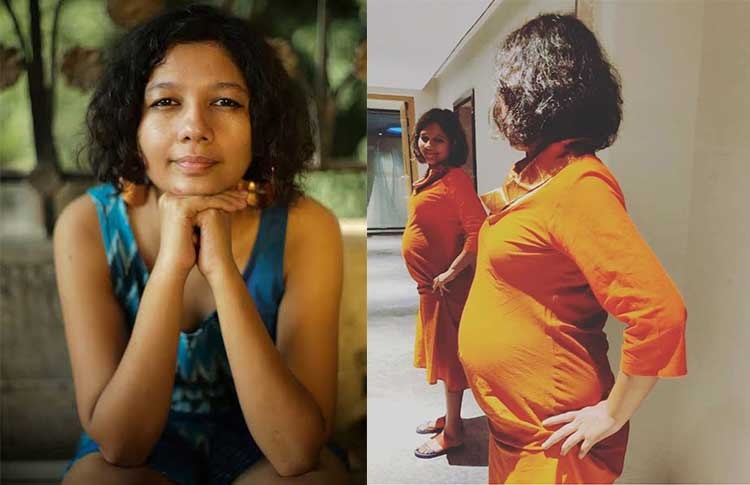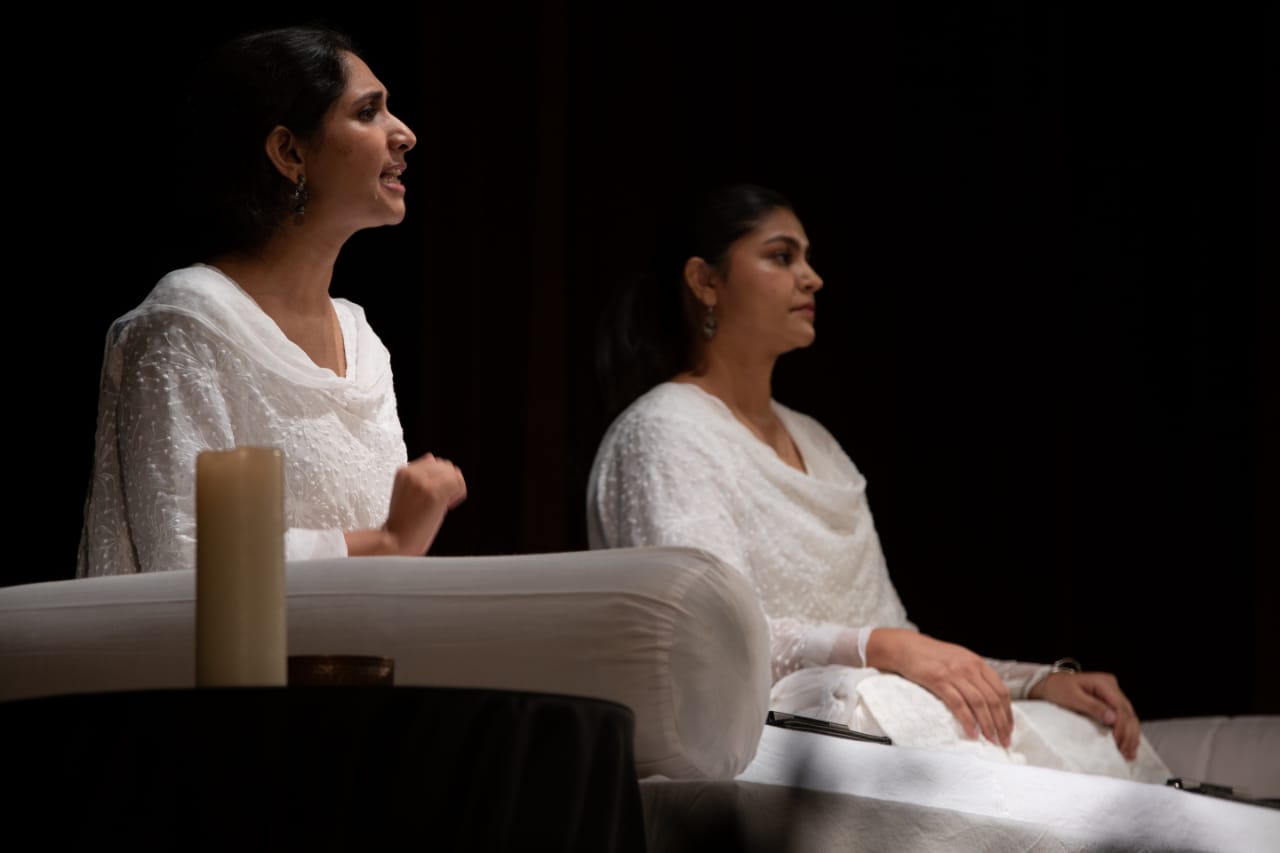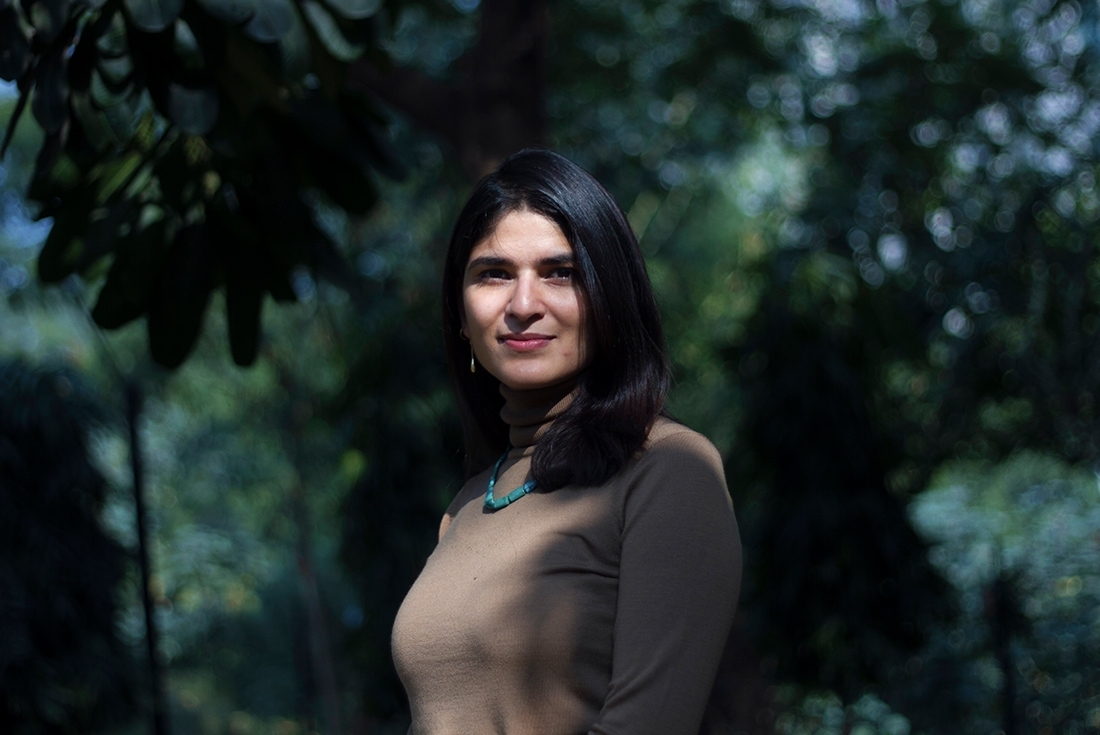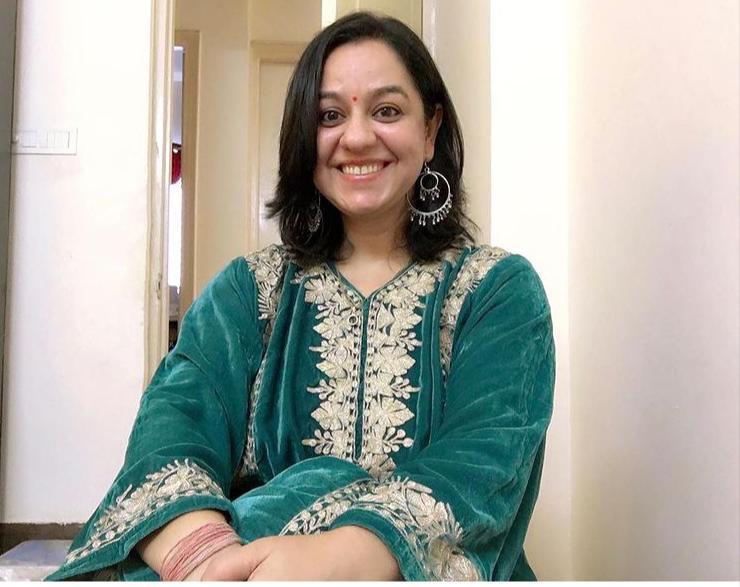A Champion Of Sustainable Fashion, Umang Sridhar’s Initiative Aims At Empowering Rural Artisans
- IWB Post
- July 22, 2019

Born in a small village in Madhya Pradesh, Umang Shridhar was observant of the dismal working conditions of local weavers and artisans from a young age. Even though they had exceptional skills, the local artisans were forced to do menial jobs because of lack of resources and the poor wages that they got for fine craftsmanship due to the commercialization of products.
Being a witness to this situation, Umang didn’t opt for a corporate career despite completing her graduation from Delhi University. Instead, she embarked on a journey that aimed at empowering the local weavers and artisans of her village. In 2015, she formed the foundation of KhaDigi, a handcrafted fabrics company which is a social startup that works on a B2B model. While socio-economic stability for the rural artisans remains the primary concern of the company, it also aims to revive the age-old tradition and arts of khadi by giving the fabric a contemporary twist.
With her remarkable efforts, within two years from the time when the company began its operations (2017), Umang has already made it to the Forbes 30 under 30 list of young achievers.
Excerpts:
You made it to the Forbes 30 under 30 young achievers list and I’m sure it must be an incredible feeling. But with such achievements, one is often taken back to the difficult times one faces which makes you realise that the struggle was all worth it. So what was that one moment for you?
Oh yes, we had faced many difficulties, but we came out of it and today we are here, which absolutely makes the whole journey special. Our achievement has now started making people talk about our work, but the team only really knows how difficult the whole process was for us to reach this level. I would say our entire team has been a problem solver due to which we managed to sail through those times. Talking about that one moment, which was quite a difficult phase for me was when we had managed to raise funds but the money was taking time to come in. I would constantly be questioning about when would it happen. Finally, our deal got finalized and I received the cheque in the evening when the Forbes list also came out. So that time was actually one of the most difficult for me.
What was that experience that actually pushed you to work for the artisans?
So during my childhood, I saw many differences in the society which actually pushed me to think that what am I doing to make their lives better. When I went to DU to complete my graduation, my focus was very clear that I had to make myself independent and explore different avenues that were available for me, so that I could work in the rural setup. I thought a lot about what is it that I can do for people who don’t have that kind of exposure, who don’t know what their rights are, but they are skillful and are definitely very hard working. So I reached a conclusion where I thought that if the artisans can be given work in their village with some dignity, then this world would become a better place for them to live in. That’s how KhaDigi came to form.
Talking about that one instance in particular that made me feel that something was needed to uplift the artisans was that, during my childhood, my grandmother never used to let us play with kids from scheduled castes. I always had a debate with her as to why was it such a big issue, and she would tell me they play in dirty areas and they don’t belong with you because you are a Brahmin. So all of these things were something that I felt were wrong and I wanted to work to change those mindsets.
Did you experience any resistance from the people around you when you started your company?
Definitely, people had a lot of questions as to why was I doing this and would I be able to survive with this. They would tell me that you have studied from DU and so you should rather be taking a good job and get settled in big cities than come back to the village. So all such kinds of things were there, but my parents, especially my father, were very supportive of me. My mother was also a big support system, but she would get scared because I was going to different types of places in remote areas.
However, she herself was a Janta Adhyaksh (block development officer) having around 62 villages under her. So from a young age, I saw the kind of hard work she would put in for the upliftment of people in the villages and that was the kind of base that was built for me, where I was taught that you have to work for your people.
What according to you are the reasons for the economic instability of artisans?
The biggest thing is commercialization and the capitalist society that we have. We want to buy everything at cheap rates and nothing else matters in our country. There are very few people who believe in quality, which you can only get by paying much more. And that’s the reason for the downfall of artisans in our country because people don’t appreciate fine craftsmanship. They don’t want to buy a good product, they just want to buy a lot of products. As a result of it, these people don’t get the value for their hard work.
To make a handloom fabric the artisans have to spend about eight hours a day to make five meters of cloth. So if I pay them according to the rates set by the government which is around Rs 20 for making per meter they will only earn around Rs 100-150 a day. This leads to the fabric being cheaper. At KhadiGi we pay our artisans not less than Rs 45 and it goes up to Rs 200 a meter. We are working with highly skilled artisans and they earn up to Rs 1000 a day with us. Our core value is to give them fair wages and we don’t want to sell our product to those who don’t understand the value of the craft and the amount of hard work which goes into its making. To sensitise people towards this, we are thinking of having eco-tourism so that people come and see how the fabric is made so that they start valuing it instead of saying that it’s just a piece of fabric.
How was your experience of getting women on board?
Oh, it was amazing. I was thrilled to see that the women actually approached us, more than we went out there. Initially, I went to the villages and explained to them about the whole concept, but the follow up was from their side. They were really enthusiastic regarding the work they were about to take up and that was also because they were in need of money. The problem for them is that even if they have skills they are forced to work on farms or as construction labour and do menial jobs because there is no money or market for their products.
Was there any resistance that the women faced from their families?
Some of the families were not comfortable in sending women to work but we convinced them. Usually, men handle their bank accounts and they don’t give women the money. So as a part of our initiative, we also teach the women that now that they are working, they are the master of their money so they should take charge of it. We conduct activities for them like how to put their money in fruitful use. However, I would say despite facing issues from their families, women have fought their own battles.
Being a woman entrepreneur, did you face any challenges working in the rural areas?
I would say I didn’t face challenges being a woman. I started working at an early age and the sector I was working in (khadi) had older people at senior level. So there was resistance from them in terms of changing their ways. They would be like what will you teach me, we have been working in khadi for 50 years and all that. But these things would also be for a guy. I feel I somewhere benefitted being a woman because wherever I went I was the only woman.
I think more women should come out and do what they wish to do because the world is not that bad and people are not there just to bring us down. All the men I have met, have been very supportive and I feel if you want equality then you have to practise it yourself. You just can’t ask the world to be equal, you have to feel it yourself. If you are standing with a man and you think because you are a woman you can’t do something, then obviously the other person will also treat you like that. I am not saying you have to lose your femininity, but feel equal. If a man can do something so can you.
That’s so well said. So your website reads that you employ dacoits as well. What was the idea behind that?
Yes, we have employed the women from the families of dacoits. The initiative of asking the dacoits to leave their arms and take up charkha was spearheaded by SN Subbarao in 1970s, who was inspired by the teachings of Mahatma Gandhi. So with that these people found work at Mahatma Gandhi Seva Ashram. They were the most violent people in the world back then but now they are the most non-violent ones, I would say.
Tell me how are the artisans suffering at the hands of the middleman and how are you trying to resolve this issue?
So during our research, we identified the role of the middleman where we realised that they are a very important part of the process. You can’t eliminate these master craftsmen, but you have to make sure that right money reaches to the craft person. At KhadiGi we are trying to resolve this issue by not eliminating the middlemen, but we are making sure that the craft person is getting their fair wage. So say, if I am the buying authority and even if there is a middleman in between, I have to make sure that if I give some percentage of money to them I also give the right wage to the craft person.
As your venture is a socially-inclined and a profit-making business, how do you balance the whole thing?
Our core value is social upliftment of the artisan and we don’t call ourselves as a fabric company, we call ourselves as an innovative handcrafted fabric company. There is absolutely no deviation from our core value and at any cost, we are not going to supply power loom products.
- 0
- 0













